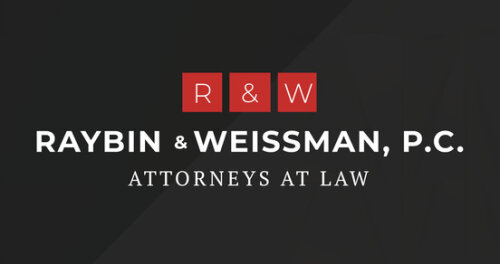Best Restructuring & Insolvency Lawyers in Arkansas
Share your needs with us, get contacted by law firms.
Free. Takes 2 min.
Or refine your search by selecting a city:
List of the best lawyers in Arkansas, United States
About Restructuring & Insolvency Law in Arkansas, United States
Restructuring and insolvency law in Arkansas encompasses the legal processes and regulations aimed at addressing financial distress faced by individuals and businesses. These laws cover voluntary and involuntary bankruptcy filings, debt reorganization, asset liquidation, and negotiations with creditors. The purpose is to provide a fair and orderly way to deal with debts and obligations when repayments are no longer sustainable. Arkansas follows the federal Bankruptcy Code but also has state-specific laws and exemptions that may apply during bankruptcy and insolvency proceedings.
Why You May Need a Lawyer
Legal assistance can be crucial when navigating the complexities of restructuring and insolvency. People and businesses may need to consult a lawyer in situations such as:
- Filing for bankruptcy under Chapter 7, Chapter 11, Chapter 12, or Chapter 13
- Negotiating debt repayment plans or settlements with creditors
- Facing foreclosure, repossession, or lawsuits over unpaid debts
- Dealing with creditors attempting to collect on debts through garnishment or lien
- Advising business owners through organizational restructuring to avoid or manage insolvency
- Interpreting rights and obligations under Arkansas and federal law
- Assisting with the protection of exempt assets under Arkansas law
- Understanding dischargeable versus non-dischargeable debts
- Compliance with court procedures and documentation requirements
- Challenging creditor claims or defending against allegations of fraud
An experienced lawyer can clarify legal options, represent your interests in court, and help minimize negative financial and legal consequences.
Local Laws Overview
While federal law governs most bankruptcy proceedings in Arkansas through the U.S. Bankruptcy Code, Arkansas law provides additional rules, especially concerning property exemptions and creditor-debtor relations. Key aspects include:
- Homestead Exemption: Arkansas residents may protect all or a substantial portion of the equity in their primary residence from creditors, though the specific amount depends on property type and marital status.
- Personal Property Exemptions: Arkansas law allows individuals to exempt certain personal property, including vehicles up to a specific value, household goods, tools of the trade, and specific retirement accounts.
- Choice of Exemptions: Residents filing bankruptcy in Arkansas may choose between federal or Arkansas state exemptions, depending on which is more beneficial.
- Chapter 7 Bankruptcy: This is liquidation bankruptcy available to qualifying individuals and businesses, with discharge typically occurring after assets that are not exempt have been liquidated.
- Chapter 13 Bankruptcy: Individuals with regular income can propose repayment plans, usually over three to five years, to keep valuable assets while repaying all or part of their debts.
- Chapter 11 Bankruptcy: Mostly used by businesses, this allows for reorganization and continued operation while debts are restructured.
- Automatic Stay: Upon filing for bankruptcy, an automatic stay goes into effect, halting most collection actions against the filer.
- Means Test: Qualifying for certain types of bankruptcy, like Chapter 7, involves a means test comparing the applicant's income to Arkansas's median income.
Understanding the interaction between federal and state laws is crucial for successful restructuring or insolvency proceedings in Arkansas.
Frequently Asked Questions
What is the difference between restructuring and insolvency?
Restructuring typically refers to reorganizing a company's finances or operations to improve financial stability and avoid insolvency. Insolvency is the state where an individual or business cannot pay debts as they come due.
Which bankruptcy chapters are most commonly used in Arkansas?
Chapter 7 and Chapter 13 are the most common bankruptcy chapters for individuals, while businesses often use Chapter 11 for debt reorganization. Chapter 12 is available for family farmers and fishermen.
What property can I keep if I file for bankruptcy in Arkansas?
You may keep property protected by Arkansas or federal exemptions, including a homestead, certain vehicles, household goods, and qualifying retirement accounts, subject to value limits.
Will filing for bankruptcy stop creditor harassment?
Filing for bankruptcy triggers an automatic stay, which immediately halts most collection actions, including phone calls, lawsuits, garnishments, and foreclosures.
Can all debts be discharged in bankruptcy?
Not all debts can be discharged. Common exceptions include most student loans, recent taxes, child support, alimony, and debts incurred by fraud.
How does the means test affect my bankruptcy filing?
The means test compares your income to Arkansas’s median income to determine eligibility for Chapter 7 relief. If your income is too high, you may need to file under Chapter 13.
How long does a bankruptcy stay on my credit report in Arkansas?
A Chapter 7 bankruptcy can remain on your credit report for ten years, while Chapter 13 generally remains for seven years from the filing date.
What if I own a business that is insolvent?
A business can restructure through Chapter 11 bankruptcy or dissolve if debts are overwhelming. An attorney can help evaluate options and guide through the process.
Do I have to appear in court if I file bankruptcy?
Most filers must attend a meeting of creditors (341 meeting) but may not need to appear in court unless there are disputes or additional requirements.
How can a lawyer help during the restructuring or insolvency process?
A lawyer can provide advice on the best legal options, handle court filings, negotiate with creditors, protect your assets under exemption laws, and ensure compliance with state and federal procedures.
Additional Resources
The following resources can assist individuals and businesses seeking information or legal assistance related to restructuring and insolvency in Arkansas:
- U.S. Bankruptcy Court - Eastern and Western Districts of Arkansas: Official court for federal bankruptcy cases in the state.
- Arkansas Attorney General’s Office: Offers guidance on consumer protection and debt collection practices.
- Legal Aid of Arkansas: Provides free or low-cost legal help to qualifying individuals in civil matters, including bankruptcy.
- Arkansas Bar Association: Directory of licensed attorneys and resources for finding specialized legal help.
- Arkansas Bankruptcy Clinics: Local and regional programs offering education and direct assistance regarding bankruptcy.
Next Steps
If you are facing financial distress or considering restructuring or insolvency in Arkansas, here is how you can proceed:
- Gather all financial documents, including lists of assets, debts, and income sources.
- Learn about the different bankruptcy chapters and Arkansas exemptions to determine which options may be available.
- Consult with a qualified restructuring and insolvency lawyer in Arkansas who can provide tailored legal advice based on your specific situation.
- Review additional resources and support organizations to understand your rights and responsibilities.
- Take prompt action to protect your assets and interests, as delays can reduce your legal options and increase financial risks.
Remember, every case is unique. Professional legal guidance is strongly recommended to navigate the restructuring and insolvency process effectively in Arkansas.
Lawzana helps you find the best lawyers and law firms in Arkansas through a curated and pre-screened list of qualified legal professionals. Our platform offers rankings and detailed profiles of attorneys and law firms, allowing you to compare based on practice areas, including Restructuring & Insolvency, experience, and client feedback.
Each profile includes a description of the firm's areas of practice, client reviews, team members and partners, year of establishment, spoken languages, office locations, contact information, social media presence, and any published articles or resources. Most firms on our platform speak English and are experienced in both local and international legal matters.
Get a quote from top-rated law firms in Arkansas, United States — quickly, securely, and without unnecessary hassle.
Disclaimer:
The information provided on this page is for general informational purposes only and does not constitute legal advice. While we strive to ensure the accuracy and relevance of the content, legal information may change over time, and interpretations of the law can vary. You should always consult with a qualified legal professional for advice specific to your situation.
We disclaim all liability for actions taken or not taken based on the content of this page. If you believe any information is incorrect or outdated, please contact us, and we will review and update it where appropriate.
Browse restructuring & insolvency law firms by city in Arkansas
Refine your search by selecting a city.
















